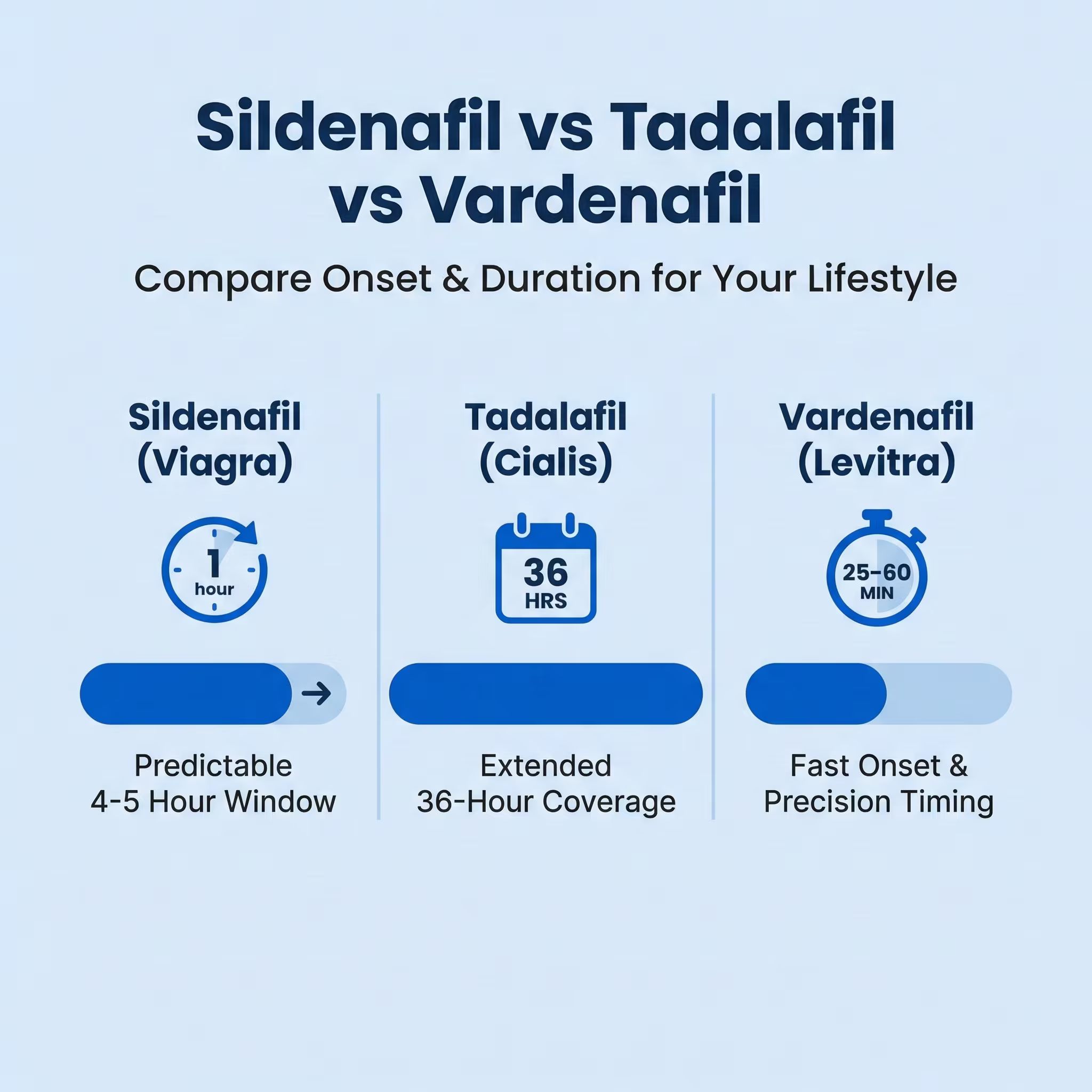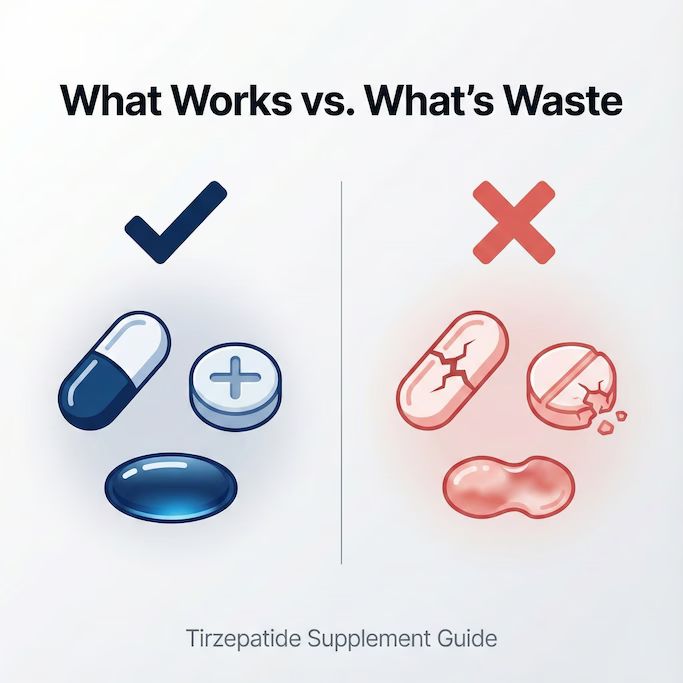By Gabriel Alizaidy, MD, MS
When most people think about cholesterol, they think about heart disease. But what if the same numbers used to predict your heart attack risk could also tell you something about your testosterone levels?
That’s the argument behind a 2025 study by Tai and colleagues, which found a strong link between the atherogenic index of plasma (AIP) and testosterone deficiency in American men.
What Is AIP?
AIP is a number calculated from two parts of your cholesterol panel: triglycerides and HDL (“good”) cholesterol. Specifically, it’s the logarithm of the ratio of triglycerides to HDL cholesterol. High AIP means you’ve got too many triglycerides and not enough HDL, which is bad news for your arteries. It’s been linked to diabetes, obesity, and heart disease.¹⁻⁵
But here's the twist: this study shows that a high AIP may also mean your testosterone is low.
What the Study Found
Researchers looked at over 4,000 adult men from the NHANES database, a large national health survey in the U.S. They found that as AIP increased, testosterone levels consistently decreased. Men in the highest AIP group had more than three times the odds of being testosterone-deficient, even after adjusting for age, BMI, diabetes, and physical activity.⁶
Each unit increase in AIP was linked to a drop of about 112 ng/dL in testosterone. That kind of decline can easily push someone below the clinical threshold for deficiency.
But that threshold, 300 ng/dL, is part of the issue. It remains widely used in clinical guidelines, yet it was never based on healthy men. It comes from statistical averages that include older, overweight, and chronically ill individuals. Plenty of men with levels above 300 still experience clear symptoms of low testosterone. For a breakdown of why this number falls short and how it became the standard, see this article.
This study’s results were not a fluke or a weak correlation. The pattern was clear, consistent, and dose-dependent. AIP did not just correlate with testosterone levels, it tracked closely and predictably with hormonal decline.
Why This Matters
Too many people, especially younger men, assume testosterone issues are only for older guys. But rates of testosterone deficiency are rising in younger men, and this study helps explain why. Metabolic health, not just age, may be the bigger factor.
If you're living on ultra-processed food, sleeping five hours a night, skipping workouts, and vaping your way through college, your lipid profile is likely poor, and that might be crashing your testosterone too. You don’t need a pituitary tumor to have low T. You might just need to clean up your diet.
This study also exposes a blind spot in how we treat men’s health. Doctors routinely check cholesterol. But even when they see bad lipid numbers, high triglycerides or low HDL, they rarely think to check testosterone. That’s a mistake. This data shows that metabolic dysfunction and hormonal dysfunction are two sides of the same coin.
What to Do With This Info
If you're a guy with poor triglyceride and HDL numbers, don’t wait for someone to bring up hormones. Ask for a testosterone test.
If you're dealing with low energy, low libido, or brain fog and your doctor dismisses it because you're “too young,” push back. Metabolic health isn’t just about heart attacks in your 60s. It’s affecting how you feel today.
Also, this is a call to action for researchers and clinicians. Testosterone should not be treated as some isolated reproductive hormone. It is part of a much larger network of systems including metabolic, inflammatory, and cardiovascular health, and it deserves to be included in the bigger health conversation.
Bottom Line
The authors did not just find a link between AIP and testosterone. They reframed what cholesterol numbers can reveal about men’s health. For young men especially, this is not just about future cardiovascular risk, it is about what is happening to your hormones right now.
You probably will not see “AIP” flagged on your lab report. But if your lipid markers are abnormal, testosterone should be the next thing you check.
Support from Maximus
You don’t need to wait in line or schedule a visit to get your testosterone tested. Maximus offers At-Home Lab Tests, which are accurate, easy to use, and virtually painless. The Advanced Test Kit measures up to 12 biomarkers, including free and total testosterone, giving you the data you need to start any Testosterone Protocol. Whatever your goal, Maximus provides a seamless path to hormone health.
----
Disclaimer: The contents of this article, including, but not limited to, text, graphics, images, and other information, is for information purposes only and does not constitute medical advice. The information contained herein is not a substitute for and should never be relied upon for professional medical advice. The content is not meant to be complete or exhaustive or to be applicable to any specific individual's medical condition. You should consult a licensed healthcare professional before starting any health protocol and seek the advice of your physician or other medical professional if you have questions or concerns about a medical condition. Always talk to your doctor about the risks and benefits of any treatment. Never disregard or delay seeking professional medical advice or treatment because of something you have read on this site. Maximus does not recommend, endorse, or make any representation about the efficacy, appropriateness, or suitability of any specific test, products, procedures, treatments, services, opinions, healthcare providers or other information contained herein. Maximus is not responsible for, nor will they bear any liability for, the content provided herein or any actions or outcomes resulting from or related to its use.
----
References
- Dobiasova M, Frohlich J. The plasma parameter log (TG/HDL-C) as an atherogenic index. Clin Biochem. 2001;34(7):583-588. doi:10.1016/s0009-9120(01)00263-6
- Zhu X, Yu L, Zhou H, et al. Atherogenic index of plasma as a biomarker associated with obesity. Lipids Health Dis. 2018;17:37. doi:10.1186/s12944-018-0686-8
- Li YW, Kao TW, Chang PK, et al. Atherogenic index of plasma as predictor of metabolic syndrome. Sci Rep. 2021;11:9900. doi:10.1038/s41598-021-89307-z
- Won KB, Heo R, Park HB, et al. AIP and rapid progression of coronary atherosclerosis. Atherosclerosis. 2021;324:46-51. doi:10.1016/j.atherosclerosis.2021.03.009
- Fernandez-Macias JC, Ochoa-Martinez AC, et al. AIP as predictive biomarker for cardiovascular illnesses. Arch Med Res. 2019;50(5):285-294. doi:10.1016/j.arcmed.2019.08.009
- Tai Y, Chen B, Kong Y, Shang J. AIP and testosterone deficiency in US men. Front Endocrinol (Lausanne). 2025;16:1531221. doi:10.3389/fendo.2025.1531221










